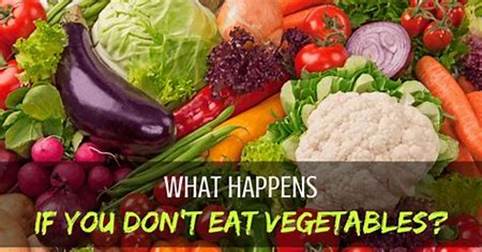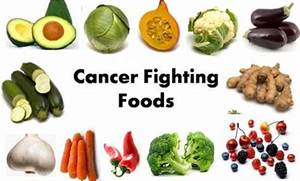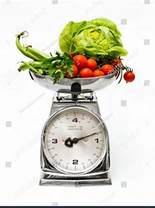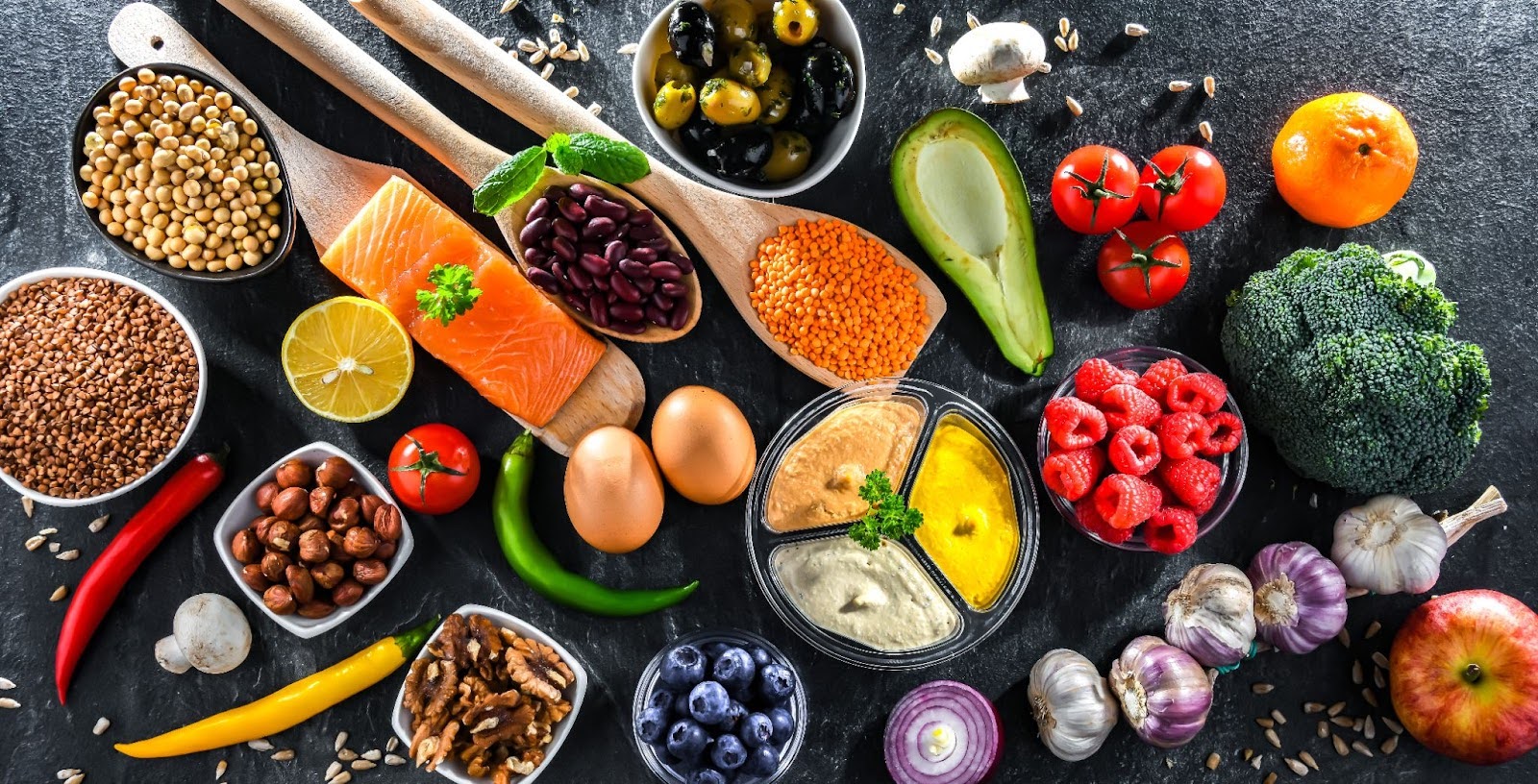
So my husband rarely eats vegetables. Can you imagine my worry? Feelings aside, there is some nutrition science to be aware of about not taking in vegetables on a regular basis. I’m sure you know there are health benefits of vegetables, yes?
A study from Johns Hopkins University showed that only 11 percent of adults ate the USDA-recommended three servings of vegetables and two servings of fruit a day. A recent study from the CDC found similar results. Like, whoa. We must discuss.

You actually need to eat vegetables every day because you need a supply of vitamins every day. The vitamins in vegetables are essential. Some vitamins can be stored for future use, and others cannot. Some of the vitamins that can be stored in the body are called fat-soluble vitamins, such as vitamins A, D, E, and K. For the body to run its best, we also need water-soluble vitamins. Found within this group are all of the “B-complex” vitamins, including vitamins B1, B2, B3, B5, B6, B12, biotin, choline, folic acid, and vitamin C. We need these water-soluble vitamins every single day because they can’t be stored in the body or can only be stored in small amounts. And since the body cannot make these vitamins (or any vitamins), we have to get them from the food we eat. When considered as a group, vegetables are unusually rich sources for a full mixture of water-soluble vitamins. That’s why so many health care recommendations (including the U.S. Food Pyramid) encourage 3-5 servings of vegetables per day.
When it comes to vegetables, there is also their abundance of phytonutrients (think FIGHT-o-nutrients) to consider. In the science of food, no change has been bigger than the discovery of phytonutrients and their unique place in our health. Phytonutrients include all of the unique substances that give foods their gorgeous colors, their delicious flavors, and their unique aromas. They are also the nutrients most closely linked to prevention of certain diseases. Carotenonids and flavonoids are the two of the largest groups of phytonutrients, and there is no food group that provides them in amounts as plentiful as vegetables. The phytonutrients in cruciferous vegetables like broccoli, and in root vegetables like onions and garlic, are unique when it comes to decreased risk of certain cancers, and some of these phytonutrients simply cannot be found in other food groups.
Finally is the amazing digestive benefits that come from the high-fiber content of vegetables. Dietary fiber is critical for our health, not only on a daily basis, but on a meal-by-meal and snack-by-snack basis as well. Food cannot move through our digestive tract in a healthy way unless it is fiber-rich. And, vegetables are some of the very richest sources of fiber that exist.
If you aren’t convinced, let’s get specific about the risks. What really happens if you don’t eat your vegetables?
You could develop digestive problems

Without veggies, you’re more prone to digestive disorders such as constipation, hemorrhoids, and diverticulosis. Owy! Vegetables contain cellulose, which increases stool weight, eases passage, and reduces transit time. In addition, they contain fiber, which helps to alleviate or prevent constipation, stimulates the GI track muscles so they retain their strength and resist bulging out into pouches called diverticula, and reduces pressure on the lower bowel, making it less likely for rectal veins to swell (which causes hemorrhoids). A study from Harvard Medical School showed that a diet high in dietary fiber, which veggies provide, reduces the risk for diverticular disease.
Your risk of cancer increases

According to the American Institute for Cancer Research (AICR), no one food can protect you against cancer, but a diet filled with plant-based foods can help lower your cancer risk. Antioxidants such as vitamin E, vitamin C, and carotenoids may reduce cancer risks by protecting healthy cells from free radicals. Carotenoids (pigments including beta-carotene), which can be found in spinach, other dark leafy greens, deep orange fruits, sweet potatoes, squash, and carrots may protect against cellular damage and have been associated with lower rates of cancer. Some studies, including a report from the World Cancer Research Fund and the AICR, have also shown specific vitamins to prevent specific kinds of cancers. But getting vitamins alone is not enough, the AICR says; evidence suggests the “synergy of compounds” working together in the overall diet offers the best protection. Sorry to those who are relying on their nutrients in powder or pill form. Wah Wah… so get at least a serving of vegetables in, people.
You may gain weight

If you’re not eating fruits and veggies, you might be eating foods with a higher fat content and caloric density. A study led by researchers at the Albert Einstein College of Medicine showed that overweight and obese portions of the U.S. adult population ate less fruits and vegetables than normal-weight groups. Most often the diet containing foods that are high in energy density (meaning more calories per gram) leads to overeating and weight gain. Fruits and vegetables are low in calories (low in energy density but high in nutrient density). Therefore, one can eat more and feel more satisfied with fewer calories.

You’re more likely to develop diabetes

Because weight gain is associated with diabetes, you increase your risk for diabetes when you eat high energy density foods instead of fruits and vegetables. Studies have shown that an increased consumption of vegetables and fruit might indirectly reduce the incidence of it. If you already have diabetes, not eating fruits and veggies can make it worse because in its place are typically refined carbohydrates.
You might watch that blood pressure climb

A diet high in sodium and low in fruits and vegetables will contribute to higher blood pressure. The Dietary Approaches to Stop Hypertension (DASH) study proved that a diet rich in fruits and veggies can reduce blood pressure, and in people who already had hypertension, the diet reduced their blood pressure as much as medications can! That’s major. Why did this happen? Well, following a diet high in nutrient-rich fruits and vegetables, such as potassium, calcium, and magnesium, and low in sodium, helps reduce the sodium in your diet, thereby lowering blood pressure. Potassium acts in opposition to sodium (think about flushing out fluid versus retaining water – it’s a natural diuretic).
You have a greater risk for heart disease

In part because of the effect of lowering blood pressure, eating lots of fruits and vegetables can reduce your risk for heart disease and stroke. The large Harvard-based Nurses’ Health Study and Health Professionals Follow-Up Study showed that compared with those who ate less than 1.5 servings of fruits and vegetables a day, people who ate eight or more a day were 30 percent less likely to have had a heart attack or stroke. Also, it’s what you replace the fruits and vegetables with… is it refined carbs and saturated fat? If so, then yes, you increase risk in a powerful way.
You are more susceptible for depression

Researchers are just beginning to look into the connection between what we eat and our mental health, but we KNOW there’s a powerful connection. Think of the gut as our other brain. A large study out of Spain recently revealed that people with a diet high in fruits and vegetables experienced lower rates of developing depression. It’s not known yet exactly why fruits and veggies may have this protective effect on mental health, but it might be that the deficiencies in nutrients such as pantothenic acid and vitamin B6 could possibly be the cause of depression in those who don’t consume enough of them.
To avoid the effects of not eating vegetables, why not be open to some ideas to increase your intake, even if you don’t like the taste? Try smoothies, juicing, pureed soups, adding fruit to salad, or hiding veggies in sauces, ravioli, frittatas, or mashed potatoes. Although supplements can help fill in nutritional gaps, they can’t replicate all the benefits of eating whole foods. No way no how. Just start with one more serving per day. That’s feasible, right?
And if you want your partner or loved one to change any eating behavior, whether it’s increasing veggies or whatever you think is best for them, it’s important to note that giving unsolicited advice to someone who’s not steering the new change ship themselves… it’s futile. Trust me. You can always provide a supportive and loving environment surrounding this (i.e. eating the veggies yourself and having an abundance that’s accessible), but it’s ultimately up to them to make a lasting behavior change. It’s a tough lesson when you care so deeply about their health, but it’s behavioral science, man. We’ve got to work within this human construct.
Love yourself into health, and those around you will follow,
Miriam
Studio SWEAT Dietitian
Resources:
https://www.hsph.harvard.edu/nutritionsource/what-should-you-eat/vegetables-and-fruits/
http://whfoods.org/genpage.php?tname=dailytip&dbid=127
https://www.rd.com/health/healthy-eating/eat-more-fruits-veggies/








Comments - 0